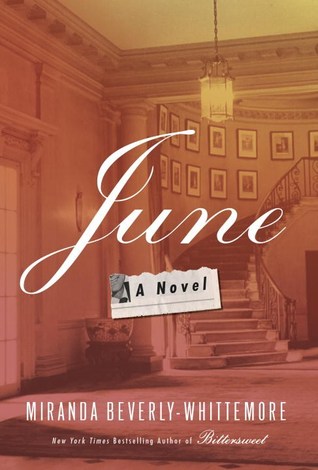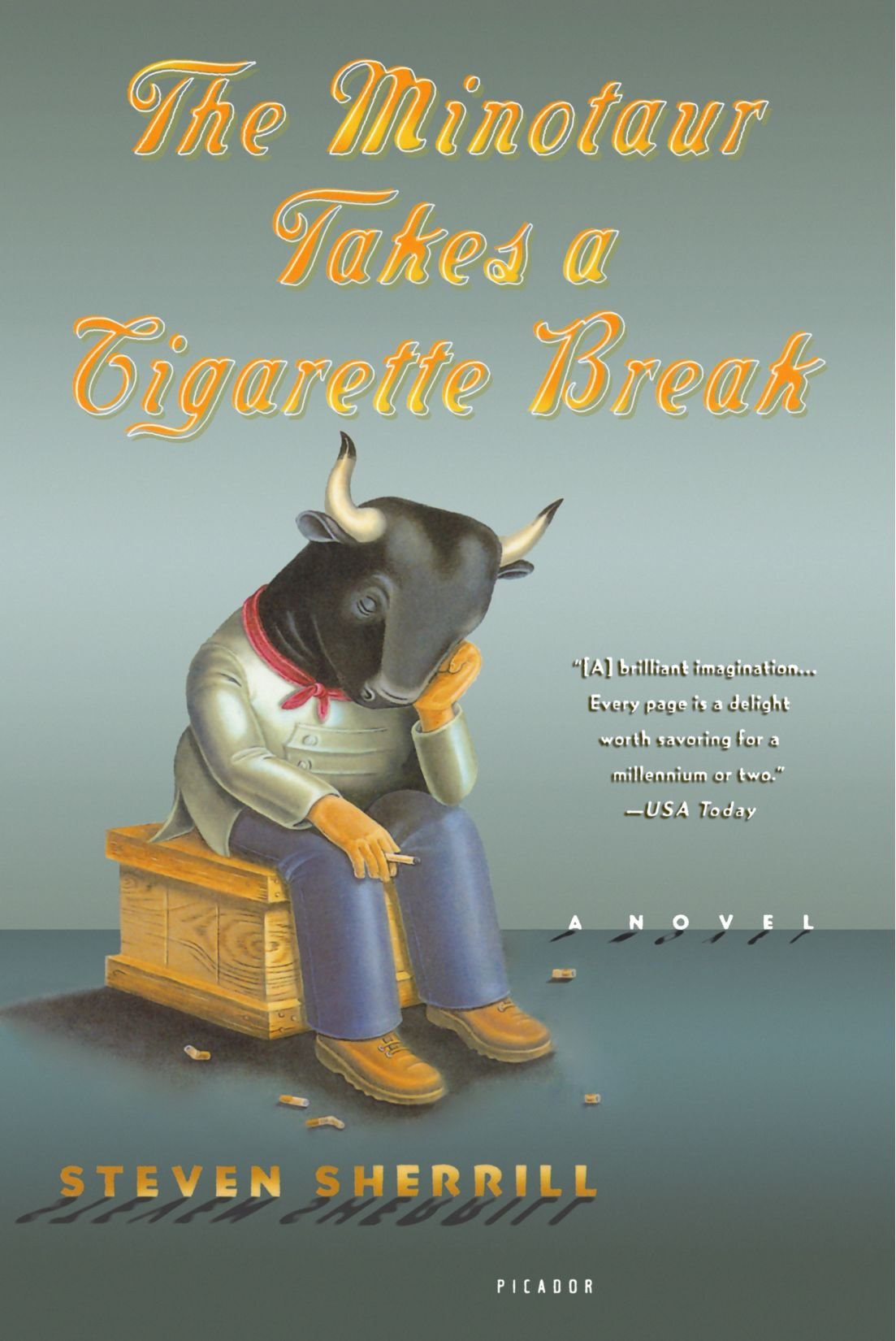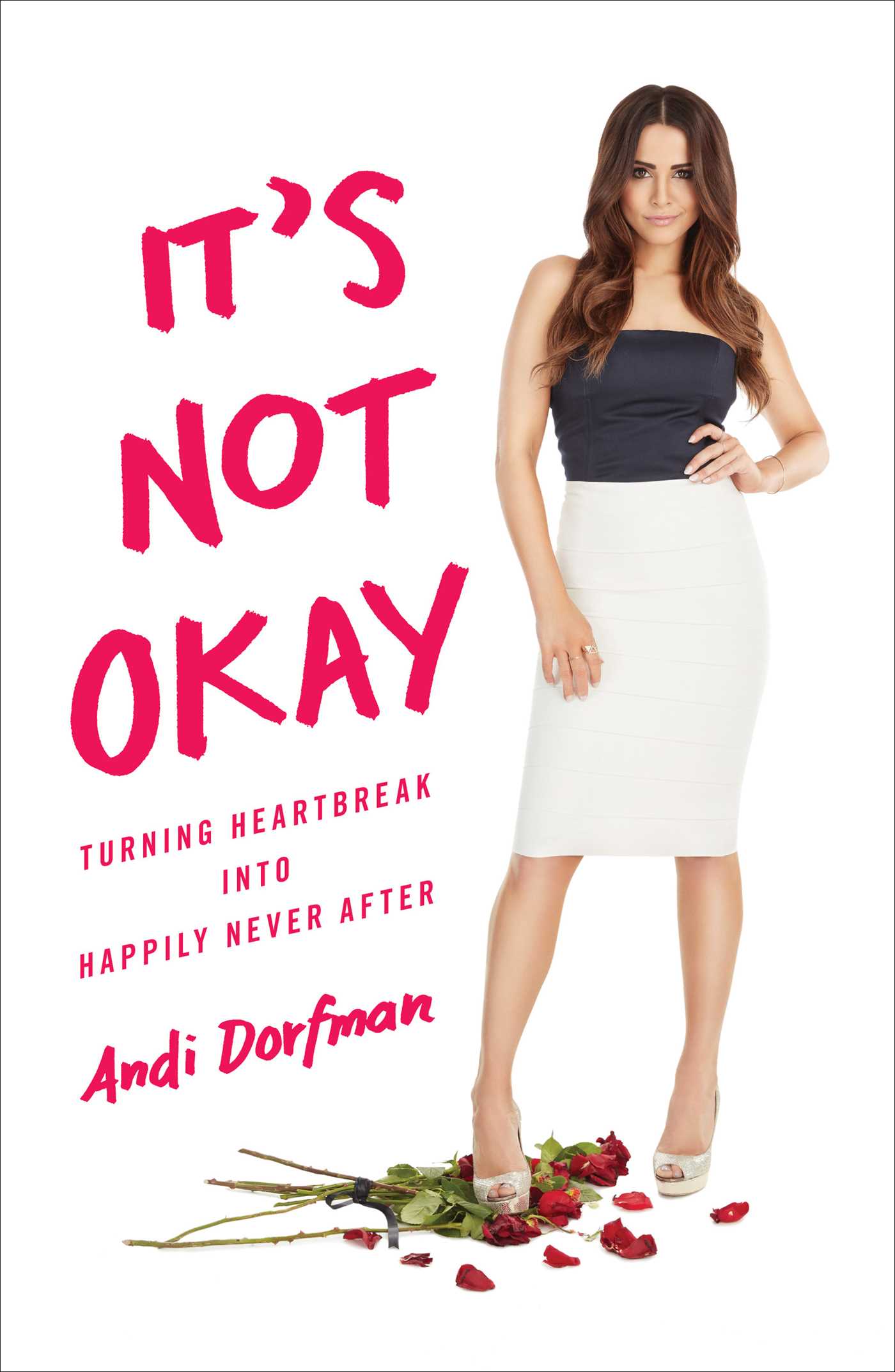9 books to read at the beach this summer
Non-fiction, horror, short stories, and novels more compelling than even your sunny, sandy locale

A free daily email with the biggest news stories of the day – and the best features from TheWeek.com
You are now subscribed
Your newsletter sign-up was successful
June: A Novel, by Miranda Beverly-Whittemore

Miranda Beverly-Whittemore thrives on the slow reveal of the buried family secret, and chapter by time-hopping chapter, her new novel, June, delivers deliciously satisfying suspense. Cassie Danvers, 25, is lost and mourning the death of her grandmother, June, who raised her, by sequestering herself in the family's crumbling mansion in St. Jude, Ohio. But when Cassie is named the beneficiary of legendary Hollywood icon Jack Montgomery's entire fortune, her bubble of self-pity is popped by the star's equally famous daughter, Tate, who appears on her doorstep. Eager to find out why her father bequeathed his estate to this orphaned nobody, Tate and her entourage indulge Cassie's request to investigate the supposed relationship between Jack and June in the summer of 1955, when Hollywood descended upon St. Jude to film a movie. June is packed with family secrets, illicit romance, loyal friends, endearing celebrities, and mysterious tragedies. From the opening line, you can't help but rubber-neck your way through, craning to read one more page, sentence, word, before being forced to re-enter the real world again. —Lauren Hansen, executive editor of multimedia
The Best Team Money Can Buy, by Molly Knight
The Week
Escape your echo chamber. Get the facts behind the news, plus analysis from multiple perspectives.

Sign up for The Week's Free Newsletters
From our morning news briefing to a weekly Good News Newsletter, get the best of The Week delivered directly to your inbox.
From our morning news briefing to a weekly Good News Newsletter, get the best of The Week delivered directly to your inbox.
You don't have to be a Dodgers devotee, or even a baseball fan, to be hooked by The Best Team Money Can Buy. Molly Knight's fascinating chronicle of the Dodgers' unexpected rise to being one of the richest teams in the sport will inspire playoff levels of emotion, from giddiness to heartbreak. I missed my subway stop twice reading the book last July. Knight is an expert at rendering the team's big personalities as vibrant as any fictional character. Her secret? "If you want to know what a star athlete is really like, you'd better ask his mother or his wife," she has said. By doing so, she offers a 360-degree view of a team that is as thrilling on the page as it is on the field. (For a little more background — and a taste of Knight's humorous prose — check out her fabulous essay on being a woman journalist in the locker room over at ESPN.) —Jeva Lange, staff writer
The Sixth Extinction, by Elizabeth Kolbert
A free daily email with the biggest news stories of the day – and the best features from TheWeek.com
So far, there have been five. Five mass extinctions of life on Earth going back hundreds of millions of years. Some — like the disappearance of the dinosaurs following an asteroid collision — were the result of sudden natural catastrophe. Others — like the die-off of megafauna at the end of the last ice age — may be directly linked to human behavior, and it's this detail that propels Elizabeth Kolbert's fantastic, Pulitzer-Prize winning nonfiction book The Sixth Extinction. The New Yorker journalist meticulously chronicles the mass extinctions of the past and makes a compelling case that we're in the midst of another — "the Anthropocene" — which is directly linked to our own species' impact on global ecosystems. It's simultaneously fascinating and horrifying, a page-turner that ticks lots of boxes for the scientifically curious: History? Check. Paleontology? Yep. Geology? Oh, yes. Sure, the premise of The Sixth Extinction is a bit ominous, but it's a titillating examination of the planet's history and an examination of what's to come. You'll be smarter for reading it. —Jessica Hullinger, senior editor
The Minotaur Takes a Cigarette Break, by Steven Sherrill

At the center of Steven Sherrill's imaginative 2002 book The Minotaur Takes a Cigarette Break is "M," the titular Minotaur, who, having escaped out of a Labyrinth in Crete 5,000 years ago, is now a line cook at Grub's Rib in North Carolina, working the three-to-midnight shift, handling the steam table and the Fry Daddy. He sews to make new necklines for his shirts. It's a fall from his previous virgin-devouring and flesh-despoiling life. Other immortal creatures are rumored to be working similarly dead-end jobs in toll booths and the like. M is both repulsed and curious about the way the rest of us get on in life. "At his core the Minotaur is a voyeur. His humanity ebbs and flows in a cycle all its own and refuses to be called upon, refuses to be predictable." Sherrill is a poet, and it shows throughout in the vivid, expert sentences that make up this book. In fact, some of the chapters are rendered as poetry, too. But this book is not arduous or self-consciously lofty. It is a fun, breezy read that you will be recommending to everyone next summer. —Michael Brendan Dougherty, senior correspondent
The Lady and her Monsters: A Tale of Dissections, Real-Life Dr. Frankensteins, and the Creation of Mary Shelley's Masterpiece, by Roseanne Montillo
Roseanne Montillo's 2013 book dives into the story of Mary Shelley and the Victorian era's strange theories of science and medicine that inspired Frankenstein. At once a history of feminism, medicine, and literature, this delightful piece of nonfiction is eerie in all the right ways. The story comes to life at a time when animals, and even humans, were being shocked back from the grave in morbid public displays. It's not hard to imagine how Shelley conceived of the ghost story that became the tale of Dr. Frankenstein and his monster. But far from just a history lesson, The Lady and her Monsters leads the reader to consider his or her own views on life — and what comes after. —Lindsey Kratochwill, digital production assistant
Dead Man's Walk, Larry McMurtry
The prolific Texas writer Larry McMurtry has a true talent for creating vivid characters. Two of his most memorable, Texas rangers Augustus McCrae and Woodrow Call, are at the center of the gripping Dead Man's Walk. Although penned after the Pulitzer Prize-winning Lonesome Dove, Dead Man's Walk chronologically is first in the four-book series that includes that classic — and it works equally well as a flashback or entry point to McMurtry's saga of the American West. The novel, set in 1842, follows the garrulous, gambling-and-lady-loving McCrae and the stoic, taciturn Call on their earliest expeditions as rangers. Part of a motley crew of scouts, still-green soldiers, ill-suited commanders, and one whore, they traipse through largely unsettled country in Texas and New Mexico to explore new stagecoach routes and, later, to capture and annex Santa Fe. Along the way the troop contends with wildlife, weather, dehydration, starvation, Mexican forces, and each other. Looming over all is the ever-present threat of Indian raids and the deadly accurate lance of Comanche war chief Buffalo Hump. Leavened by humor and driven by page-turning plot, Dead Man's Walk delivers a transporting tale of another era — one that makes you grateful for the comforts of a hammock or beachside seat. —Alexis Boncy, special projects editor
Mislaid: A Novel, by Nell Zink
Equal parts theoretical allegory and comedy of errors, Mislaid, by Nell Zink, deftly sketches the conception and dissolution of what might have been a comfortably blue-blooded family. Set at a bucolic women's college in 1960s Virginia, the brief tale begins with an unlikely coupling of self-identified lesbian Peggy Vallaincourt and her sexually fluid dandy of a professor Lee Fleming. Despite their best efforts to fill their respective roles in a normative upper-class marriage, Peggy and Lee inevitably struggle to retain the mantles they've taken up, and Peggy is forced to assume a new identity as haphazardly as she stumbled into the first. She makes a break for it with one of their two children steals the name of a deceased black woman, and the mayhem spirals outward from there. In blunt prose that's irreverent without being insincere, Zink builds a world where identities are as temporary as clothing choices and often as unintended. Her matter-of-fact handling of class, race, and gender issues defies political correctness; fortunately for Zink, her observations are thoughtful enough to be worth listening to. —Roxie Pell, social media editor
The Call of Cthulhu and Other Weird Stories, by H.P. Lovecraft
It takes some effort to get into H.P. Lovecraft. The first barrier is that he was a huge racist. The second barrier, more easily surmounted, is the unfashionable, purple language. However, if you can look past the racism and settle into the language, Lovecraft is still the undisputed master of cosmic horror. And his essay collection, The Call of Cthulhu and Other Weird Stories, is packed with gripping stories of human civilization as a microscopic vestige of sanity in a vast and ancient universe filled with incomprehensible monstrosities. What makes the stories so entrancing is not necessarily the plots (somewhat formulaic) or the writing (quite antiquated), but rather his vision of horror — found not in the human psyche, but in nature itself, so enormous, old, and totally alien to human consciousness. It will leave you genuinely unsettled next time you look at the night sky. —Ryan Cooper, national correspondent
It's Not Okay: Turning Heartbreak into Happily Ever After, by Andi Dorfman

If you're harboring even the slightest interest in the pop culture behemoth that is the Bachelor franchise, former Bachelorette Andi Dorfman's new tell-all book, It's Not Okay, is the perfect indulgence. Dorfman was a finalist on the much-maligned season of The Bachelor featuring Juan Pablo Galavis, and the title of her book is a nod to the phrase Galavis uttered repeatedly to her as she broke up with him on camera. The exchange made Dorfman a Bachelor Nation favorite, which led to her own run as the franchise's 10th Bachelorette. But before she was a reality TV star, Dorfman was an assistant district attorney, and It's Not Okay is, at its core, the story of a successful career woman working her way through a bizarre dating experience to its heartbreaking, and very public, conclusion. Yes, there are juicy Bachelor details for diehard fans, but it's also packed with advice so funny, heart-wrenching, and self-deprecating that it could just as easily be dispensed from your sister or best friend instead of a reality star. It's a celebrity memoir, so it's by definition light enough to read between sunscreen applications, but not so empty you'd rather just sit and stare at the sun. And if you're worried about judgy beachgoers? Just put on your sunglasses and ignore 'em — it's okay. —Kim Alters, news editor